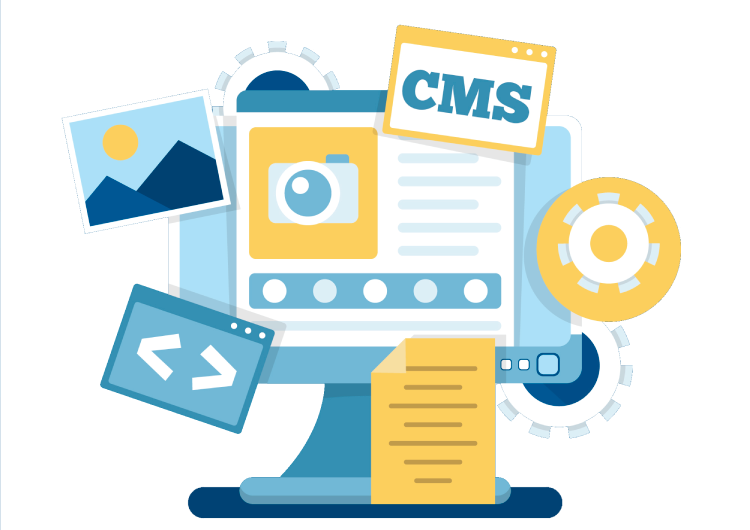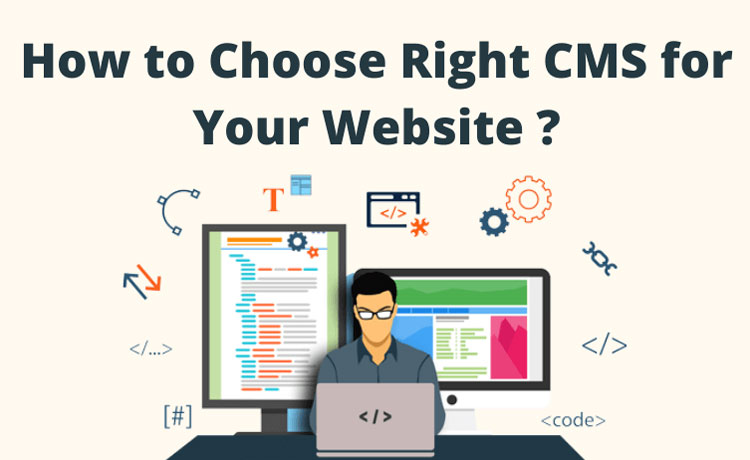What exactly is a CMS?
A CMS or Content Management System is the foundation for your website. While the platforms differ in terms of features and capabilities, they all serve the same basic purpose: generating and posting pages, blogs or items to your website. There are dozens of various platforms you might utilise depending on the fundamental functionality of your website and business.
Why Does Your Company Need CMS?

A CMS is required if you want to create an automated multi-channel marketing system for your company. This is especially true for small and medium B2B and B2C businesses.
In the case of huge organisations, the CMS requires extensive optimisation to meet the requirements of such a complex system. A CMS is also a fantastic solution for startups that need to establish e-commerce website marketing. New wholesalers and minor distributors, for example.
Let’s look at how CMS may help businesses.
-
People with less technical knowledge can easily edit content
You can hire an ecommerce development company to create content, but you also need a CMS system to speed up the process. A content management system (CMS) enables your team to post more rapidly and effectively. Compare this to the time-consuming manual operations that must be repeated for each channel. The nicest part is that you don’t need a developer to change existing material with a CMS. Your marketing staff, on the other hand, can effortlessly develop and post your text, graphics, video and audio. A CMS also makes it much easier to remove any old content.
-
Collaboration and access are made easier
You were most likely the only content creator on your website in the early days of your company. However, as your company expands, you will want more content and you will be unable to manage the full workflow on your own. A CMS allows numerous people to easily collaborate on a single piece of material. It serves as a central location for all of your content creation and collaboration. While the graphics designer adds the photos, your writer can create the blog post. The content manager can then amend the post, verify for brand consistency and publish it at any time.
When you engage a team of employees who require website access, you can utilise the CMS to create their roles and permissions based on the access requirements. This eliminates the possibility of someone mistakenly changing something they shouldn’t. You may even hire dedicated web developers to create a CMS for your business.
-
Security
The coronavirus pandemic has presented new hurdles to businesses. Many firms have had to adapt to a new operating model that mainly relies on remote labour. According to a Deloitte survey, 47% of those who work from home fall victim to a phishing scam.
Given this, B2B companies might benefit from a CMS with strict security measures. However, while some CMSs provide built-in security safeguards, they are not always sufficient. Take, for example, WordPress. According to a survey conducted by WP White Security, more than 70% of the WordPress installations examined are vulnerable to hacker attacks.
WordPress CMS
WordPress is one of the most well-known CMS platforms, noted for its blogging features and limitless customisation. Don’t be misled by WordPress’s image as a blogging platform; many businesses rely on it to develop everything from high-quality B2B websites to medium-sized Ecommerce sites.
Who is the WordPress CMS intended for?
WordPress is very adaptable and customisable, allowing you to integrate with almost anything. While it is best suited for start-ups and SMEs, it also has Ecommerce integrations via WooCommerce, making it a viable alternative in this space. While WordPress is an excellent choice for simple site designs, it is important to evaluate what the site is designed to do and how it will scale before making a selection, because with various integrations, add-ons and customisations, it may become bulky and difficult to manage. Simple is the best.
Shopify CMS
Shopify is rapidly becoming the WordPress of the Ecommerce industry, owing to a plethora of plugins that make setting up your site a breeze. Shopify also interfaces with many popular marketing platforms, like HubSpot, so if you require an Ecommerce site but also want to employ sophisticated marketing tools, Shopify and HubSpot are an unmatched combo. To know better on this you may reach out to a well reputed ecommerce development company.
Who is the Shopify CMS intended for?
Shopify is an Ecommerce platform that was created primarily for start-ups and SMEs searching for a rapid and cost-effective solution to launch their store online. Shopify is a one-stop-shop method that includes hosting and a payment gateway, which may limit flexibility for some.
